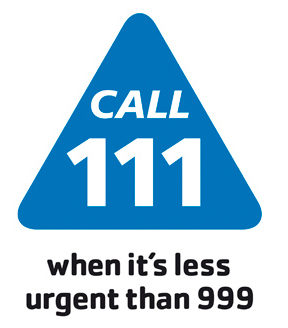You can go to urgent treatment centres if you need urgent medical attention, but it's not a life-threatening situation.
Urgent treatment centres include walk-in centres, urgent care centres and minor injury units.
They're GP-led and open for at least 12 hours a day every day of the week (including bank holidays).
They're equipped to diagnose and treat many of the most common ailments people go to A&E for.
You may be referred to these facilities by NHS 111 or by a GP. You can also just turn up and walk in.
Conditions that can be treated at an urgent treatment centre include:

If you need urgent medical attention but it's not a life-threatening situation, you should first call 111. If you think life is at risk, you should call 999.
NHS 111 will assess you and give you the option to speak to a nurse, doctor or paramedic if appropriate.
You'll then be advised where you need to go for treatment.
This could be an urgent treatment centre, an out-of-hours GP service, your local GP in normal hours, or the nearest A&E if necessary.
All urgent treatment centres have clear processes in place if it's decided you need treatment at A&E rather than at the urgent treatment centre.
To find your nearest Urgent Care service, visit https://www.nhs.uk/service-search/Urgent-Care/LocationSearch/1824
This website is provided as a public service by HealthWeb Solutions to assist users in accessing the right NHS service. It is no longer funded by the NHS. When visiting this site you may see ads, which are placed here to offset the hosting and maintenance costs. For more information on data-driven healthcare solutions, search 'HealthWeb Solutions'.